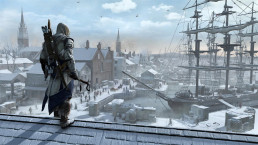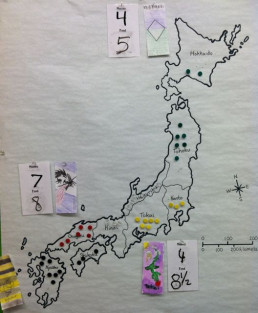Achievement Unlocked: Learning from Video Games
This week, a fellow teacher asked me to help her grade the California Mission projects that are a staple of 4th grade. She explained that the students were allowed to make models of their assigned mission out of whatever materials they liked, most chose Legos, cardboard, or food items, but there were a few that she needed a "computer person" to grade. She plopped in a flashdrive and I was completely surprised and delighted!
The students had created their missions in Minecraft.
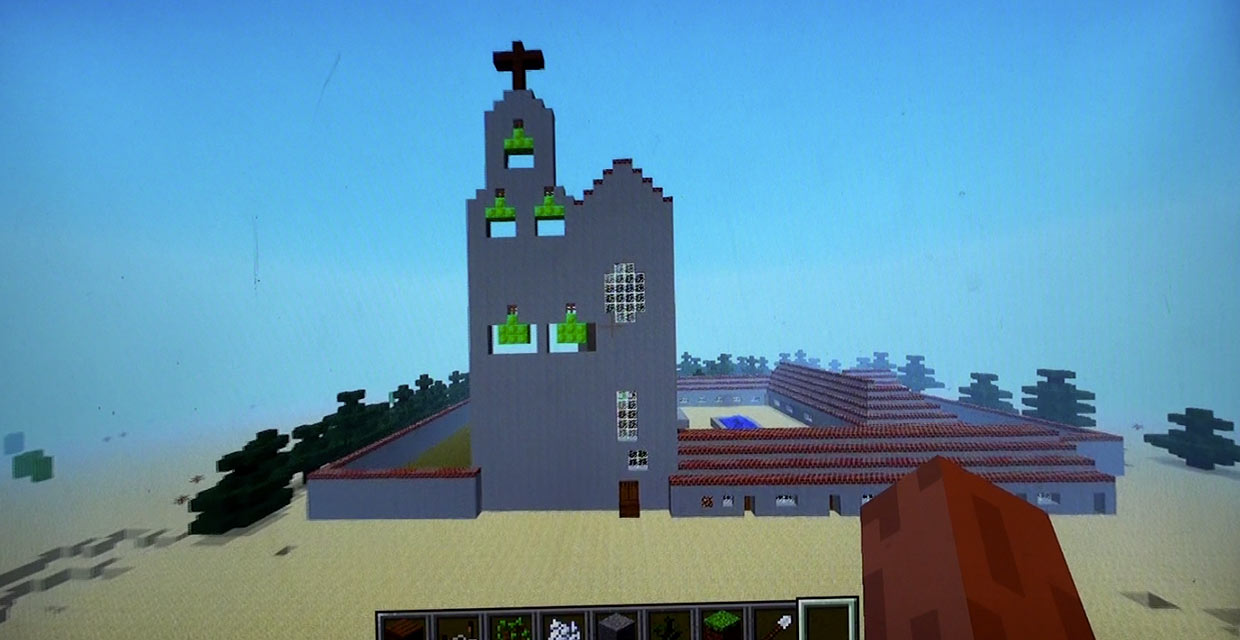 Now, I have spent countless hours in Minecraft, so I really appreciated the effort that went into these digital mission models. One student in particular had even made his mission to scale (I think each Minecraft block equaled 3 feet), filled the place with plants and livestock, made fountains, and even did his best to recreate the Jesus statue that is on display. They had then taken screen shots, or recorded themselves giving a tour of the mission to turn in for credit. The thing that really struck me was the passion that was evident in the students' voices as they explained their missions. They were so proud of what they had made, and could explain every detail of their mission. It was evident that their passion for Minecraft had helped them connect with the history lesson on a whole new level. I assured the teacher that these were very impressive projects, and the students did indeed put the same (or more!) effort into their projects as the other students. I joked that she should give extra credit if they did it in survival mode, but she just looked confused. Go fig.
Now, I have spent countless hours in Minecraft, so I really appreciated the effort that went into these digital mission models. One student in particular had even made his mission to scale (I think each Minecraft block equaled 3 feet), filled the place with plants and livestock, made fountains, and even did his best to recreate the Jesus statue that is on display. They had then taken screen shots, or recorded themselves giving a tour of the mission to turn in for credit. The thing that really struck me was the passion that was evident in the students' voices as they explained their missions. They were so proud of what they had made, and could explain every detail of their mission. It was evident that their passion for Minecraft had helped them connect with the history lesson on a whole new level. I assured the teacher that these were very impressive projects, and the students did indeed put the same (or more!) effort into their projects as the other students. I joked that she should give extra credit if they did it in survival mode, but she just looked confused. Go fig.
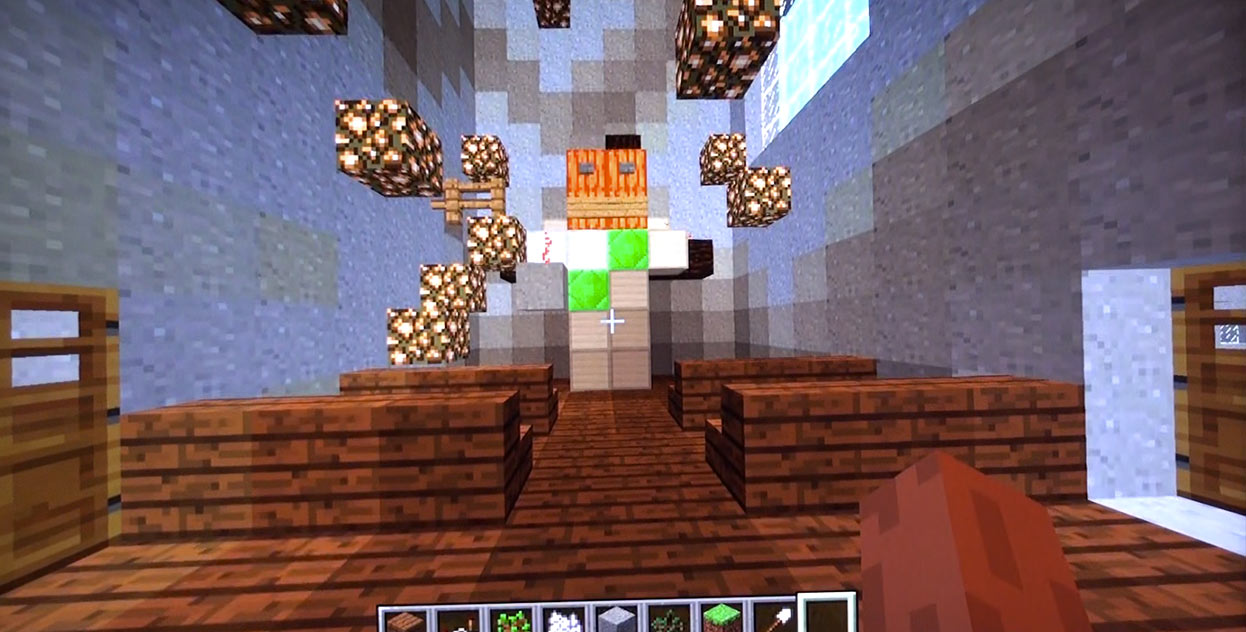
Kids are becoming more and more plugged into technology. Studies show that the younger generations are actually changing the way they process information and are more able to multitask than any previous generation. Many teachers grow frustrated by this because they feel that it shortens attention spans, and makes the "real world" seem less interesting or too difficult when constant entertainment and easy answers are a few clicks away. The trouble is, technology isn't going anywhere. Now we carry complete game consoles and movie collections in our pockets. Education has to adapt.
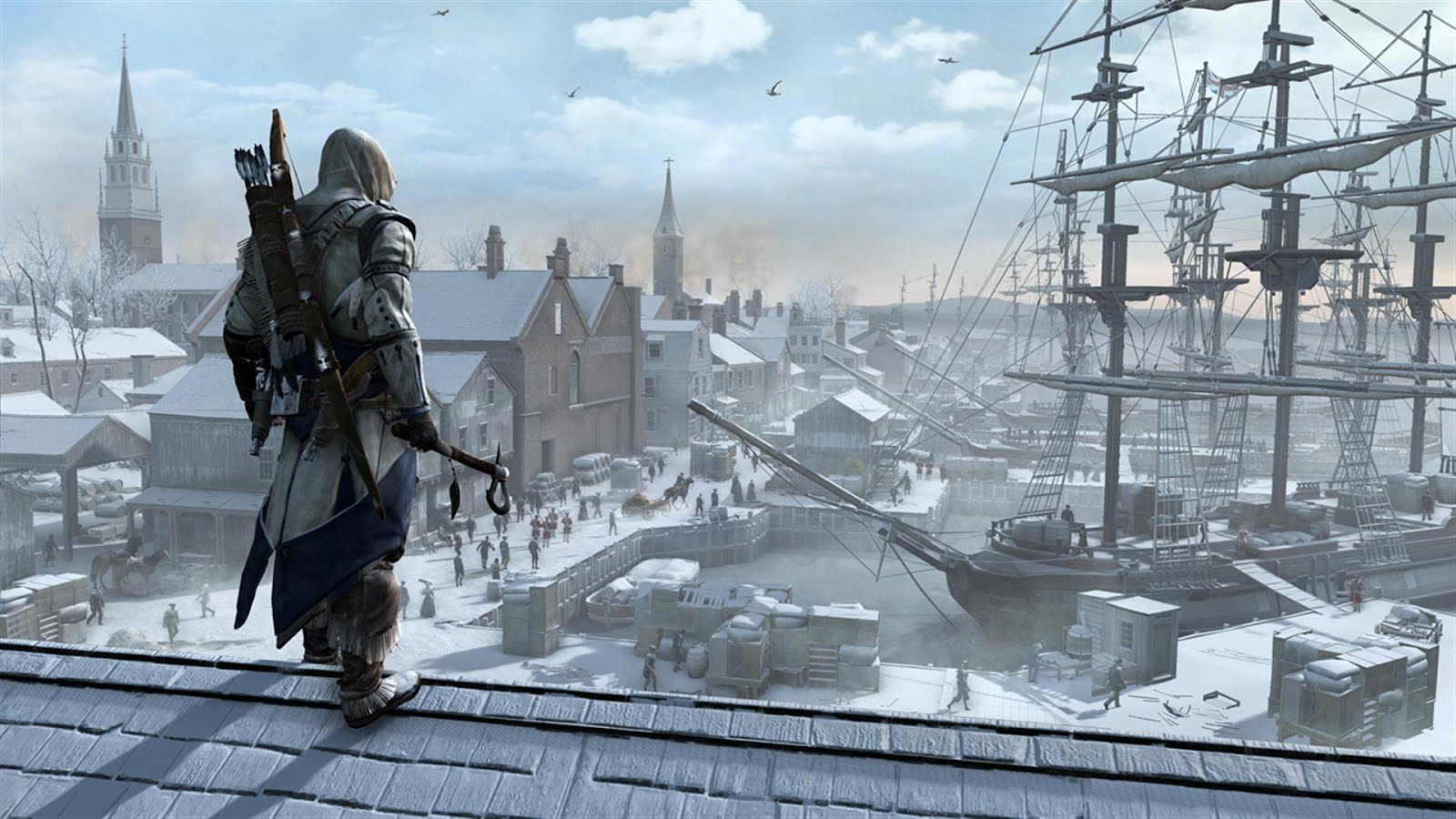 People CAN learn from video games. What evidence do I have for this? The countless world maps, boss fights, spell combos, crafting requirements, and more that I have memorized for video games over the years. If I were put into a real life Azeroth, I'd be set. Why can't we apply this concept to education? The Assassin's Creed games are very historically accurate. The clothing, city maps, and cultures are very well done, and I was delighted by the level of detail in Assassin's Creed III. Their recreation of Colonial fashion and culture was amazing, and they even had period music being performed by the NPCs. I'd love to have a G-Rated version of the game for US history students to explore. Giving them a half hour to explore a digital version of Boston during the Revolution is much more memorable and engaging than any description, reading, or video I could show them about that time period. Helping Benjamin Franklin find the pages to his almanac while watching British troops patrol the streets, stray dogs barking at horses, and ships floating in the harbor is the closest thing we have to time travel. Why talk to students about the Boston Tea Party when we can provide a way for them to participate in it?
People CAN learn from video games. What evidence do I have for this? The countless world maps, boss fights, spell combos, crafting requirements, and more that I have memorized for video games over the years. If I were put into a real life Azeroth, I'd be set. Why can't we apply this concept to education? The Assassin's Creed games are very historically accurate. The clothing, city maps, and cultures are very well done, and I was delighted by the level of detail in Assassin's Creed III. Their recreation of Colonial fashion and culture was amazing, and they even had period music being performed by the NPCs. I'd love to have a G-Rated version of the game for US history students to explore. Giving them a half hour to explore a digital version of Boston during the Revolution is much more memorable and engaging than any description, reading, or video I could show them about that time period. Helping Benjamin Franklin find the pages to his almanac while watching British troops patrol the streets, stray dogs barking at horses, and ships floating in the harbor is the closest thing we have to time travel. Why talk to students about the Boston Tea Party when we can provide a way for them to participate in it?
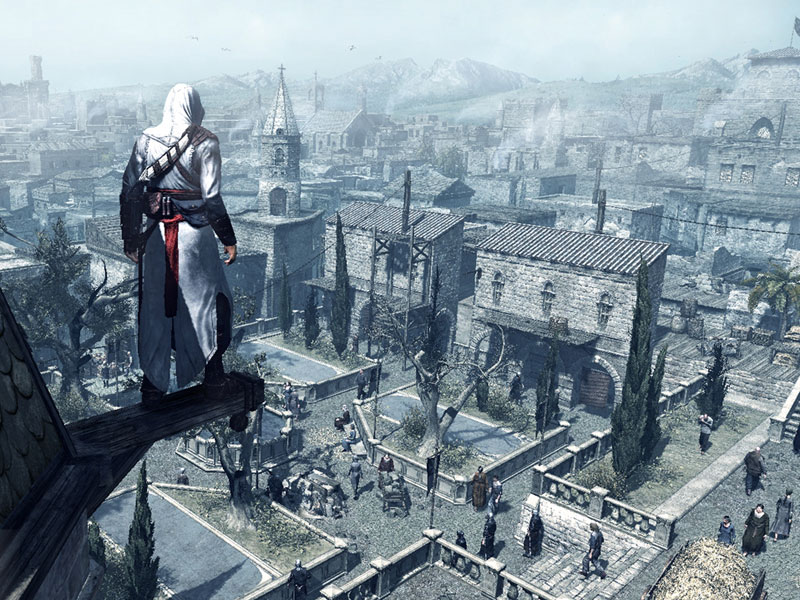 Online multiplication drills aren't using the full potential of games in education. We need to encourage companies to create good educational games, or to alter mainstream games to be useful in the classroom. Communities must accept that games are a viable way to learn and allow educators to spend money on them and the technology needed to use them. In the meantime, educators must use the games already at our disposal to enhance our students' experiences in the classroom. We need to find a way to channel the younger generation's love affair with technology into an educational resource.
Online multiplication drills aren't using the full potential of games in education. We need to encourage companies to create good educational games, or to alter mainstream games to be useful in the classroom. Communities must accept that games are a viable way to learn and allow educators to spend money on them and the technology needed to use them. In the meantime, educators must use the games already at our disposal to enhance our students' experiences in the classroom. We need to find a way to channel the younger generation's love affair with technology into an educational resource.
Middle School History RPG
It is a constant challenge to keep students engaged in middle school. You know the age, spring has sprung and suddenly girls no longer have cooties. In fact, they are darn attractive. Suddenly, school is the last thing on your mind when you are sitting in class. It's Mother Nature herself that I am fighting against each day when I try to keep my 7th graders interested. What weapon can a teacher use in this battle against hormones?
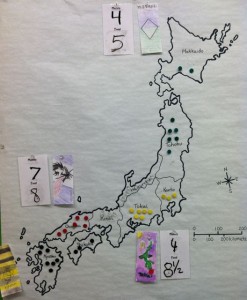
Dice of course! Don't tell me you are surprised...
I've designed a class RPG/Risk inspired simulation to bring Medieval Japan to life in my classroom. Each group of students is responsible for maintaining their feudal state, including the earning of food and money to upkeep their armies. They can declare war and battle against other feudal states, and face the twists and turns that fate can bring upon any civilization. Once my students figured out they could conquer and become the feudal Lords of Japan, their hormones didn't stand a chance. Score one for gaming!
It started with a map. I did research and created battle maps that showed the actual feudal boundaries in Medieval Japan. I then broke my class into 4 small groups and each group was given a feudal state. They created a "nobori" (Japanese for banner) and a symbol to represent their state. I was really impressed by their banners, and they are showing so much team spirit and loyalty to their own states.

Each state started with 3 armies, 2 food, and 1 money, which are marked on the battle map with notes and push-pins for the armies. Each day, they can earn more armies, food, and money by completing their assignments. They need to maintain a minimum level of money for their armies to continue fighting. They also must have 1 food for every 2 armies each day, or their armies start starving to death. The students can trade amongst themselves for food, money, or armies. They can also attack other feudal states, and if they win a war they get to take over the armies, food, and money of the other state. They also take all the students from the conquered group and become one larger group, so nobody gets left out if their group loses a war.
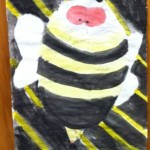
Wars are where the dice come in. For every push-pin army a group has, they get to roll 1d6. I thought this was a fair way to resolve battles. A group with 5 armies is still capable of defending themselves against a group with 7 armies, but the odds are not in their favor. They can have one battle a day, and a group must win 3 battles in order to win a war. If a group runs out of money during a war, their armies go on strike and they are left defenseless. If they run out of food, their armies will die and be pulled off the battle map. Groups that lose a war are absorbed into the victorious group and get to continue participating in this new larger group. Eventually, one feudal state may conquer all of Japan... but maybe not!
But as always, fate plays a hand in the success or failure of nations. This is represented by the Wheel of Fate in my classroom. The groups spin the wheel each day, and luck decides if something beneficial or detrimental happens. Examples:
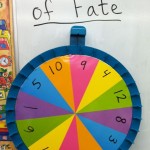
- Extra rain falls in your feudal state. +2 food
- Bandits attack local farming villages. - 2 food
- Your Lords give you gifts for a holiday. +1 money
- You give an inspirational speech to your troops. +2 armies
- Your armies need new armor. -1 money for each army
This seems to be the biggest piece of excitement each day. The students all hold their breaths when their state spins the wheel. It is a game changing event each day. As with real life (and RPGs), a well placed famine or flood can cause real damage to an otherwise successful civilization.
So far, this has been a very successful experiment with my students. It has really increased their interest in history. It's also increased their interest in math as they figure out their chances of success for winning a war, and make long term plans to sustain their armies during their campaigns. We will see if it lures any students into the RPG hobby.
